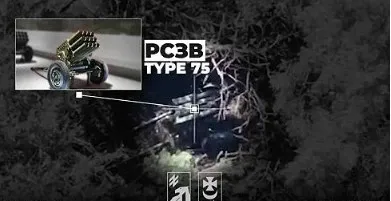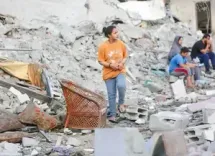Is North Korea Supplying Russia with 12 Million Rounds of 152 mm Shells?

Synopsis
Key Takeaways
- North Korea has supplied over 12 million rounds of artillery shells to Russia.
- Approximately 28,000 containers of weapons have been sent.
- North Korea is expected to dispatch additional troops to Russia in the upcoming months.
- Russia controls around 81 percent of key Ukrainian regions.
- The situation in the Middle East remains tense.
Seoul, July 13 (NationPress) North Korea has been actively supplying Russia with artillery shells to bolster its military operations in Ukraine, totaling more than 12 million rounds of 152 mm shells, as reported by South Korea's military intelligence on Sunday.
According to a report from the Defense Intelligence Agency (DIA) submitted to a lawmaker from the main opposition party, North Korea is estimated to have sent approximately 28,000 containers filled with weapons and artillery shells thus far.
"When considering the individual 152 mm shells, it is presumed that the total number supplied has surpassed 12 million," stated the DIA under the defense ministry.
Since October of last year, North Korea has dispatched conventional arms and around 13,000 troops to assist Russia's military endeavors.
Seoul's intelligence agency suggested in late June that North Korea is likely to send additional troops to Russia in July or August. Reports from Russian media indicated that North Korea will send 5,000 military construction workers and 1,000 sappers to Kursk to aid in reconstruction efforts.
On June 26, following a visit by Russia's Security Council Secretary Sergei Shoigu to Pyongyang, it was reported that North Korea plans to dispatch thousands of military construction personnel to the Kursk front line.
The National Intelligence Service (NIS) also highlighted that North Korea has extended its support to Russia by supplying over 10 million artillery shells, missiles, and long-range weapons in exchange for economic collaboration and technical assistance from Moscow.
According to the NIS, North Korea's troop deployments and arms supplies have played a significant role in enhancing Russia's military capabilities, with Russia controlling around 81 percent of the four Ukrainian regions: Donetsk, Zaporizhzhia, Kherson, and Luhansk.
The NIS also mentioned that Ukrainian intelligence is raising the likelihood of a Russian offensive occurring between July and August.
In relation to the situation in the Middle East, the NIS has issued warnings regarding the potential for renewed conflict between Israel and Iran, despite the existing ceasefire.









